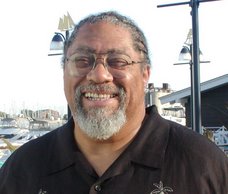
Allen L. Johnston – The Music Specialist
www.asha.com
On October 25, 2010 the NAB announced that its Radio Board is backing a "limited" performance fee that would range between 0.25% and 1% of a station's net revenue, depending on a provision related to the rollout of radio-activated mobile devices. Under the terms approved by the Board, the Copyright Royalty Board will no longer set rates for broadcast or Internet radio, MusicFIRST must acknowledge and recognize "the unparalleled promotional value" of radio, and an AFTRA issue that would allow streaming of commercials must be resolved.
Upon first reading about the proposed terms I immediately thought that NAB was trying to work against the musicians and artists that comprise MusicFIRST.
Their first requirement of disbanding the Copyright Board's ability to set rates is completely not in the interest of MusicFIRST. This idea is presented for terrestrial radio broadcast AND Internet streaming. I believe that the entire industry is headed towards reception of Internet streamed material direct to consumer. Of course the NAB wants to set their own rates and when they can’t agree with the artists they want a special "legislatively mandated rate court." to handle the situation. Without a governing body that regulates, sets rates and procedures the NAB would have no one to control them and their money would keep litigation going on for years.
The second issue of wanting the US government to make FM chips in cellphones mandatory has nothing to do with the rights of MusicFIRST or artists as a hold. Once you read the terminology you then understand that this will include ALL radio active mobile devices, which mean computers, cell phones, and anything new that may come around. My question is WHY? FM technology is OLD antiquated technology that will be totally phased out within a few years. What is the real reasoning behind the NAB wanting to impose their will upon the entire music industry? It must have something to do with the idea of Internet streaming and their ability to control the airwaves, (read MONEY).
Gary Shapiro, CEO of the Consumer Electronics Association, which represents the mobile phone makers has said “If NAB keeps pushing this agenda, CEA will "continue to point out the following":
"Radio is a legacy horse and buggy industry trying to put limits on innovative new industries to preserve its former monopoly. The industry's refusal to innovate to the benefit of consumers raises questions about the ongoing wisdom of broadcaster use of publicly owned spectrum that could better be used for broadband services that serve the public interest."
And:
"Many local radio stations are unmanned, particularly at nights and on weekends, rendering the alleged emergency alert benefit of FM tuners in mobile phones unreliable and raising questions about the wisdom of permitting such unattended operation."
And:
"At a time when popular new digital media platforms like satellite radio and online music services are required to pay performance royalties to copyright owners, it is unclear that the royalty exemption for broadcast radio stations can be justified. Indeed, fairness requires that the royalty rate paid by broadcasters should be the same as that assessed to online music streaming services and other new technologies."
The payment rate quoted for musical artists of between .25 percent and 1 percent of net stations revenues is entirely too small for the amount of music played that creates revenue within the stations. The NAB broadcasters unilaterally cut their digital royalty rates and lowered their terrestrial royalty payment from the agreed upon amounts in July. The latest version of the Performance Rights Act recommends a performance royalty schedule in which commercial radio stations making $500,000 to $1,249,999 would pay an annual fee of $5,000; stations making $100,000 to $499,999 would fork over $2,500; and those making less than $100,000 would shell out $500.
Those broadcast licensees making $1.25 million or more would pay a rate to be negotiated between radio stations, copyright holders, and the Copyright Royalty Board. In trying to assess the financial impact the PRA would have on those stations, the Government Accountability Office recently suggested a hypothetical rate of 2.35 percent.
The NAB has balls if nothing else, for they have declared that the entire system currently in place must change solely for their own benefit. The government must stop doing its job on setting rules and rates, AFTRA (American Federation of Television and Radio Artists) must change its rules on separate payment to talent on streaming commercials, and artists should acknowledge the “promotional value” of radio. What about the money?
With new technology changing the communications field on almost a daily basis, the idea that one trade industry group can bully the music industry is ludicrous. Congress writes the laws, not trade associations like the NAB and Radio is the only platform in the United States that doesn’t pay performers.
Wherever the music is played the artist should be paid.




1 comment:
They have declared that the entire system currently in place must change solely for their own benefit.
Post a Comment